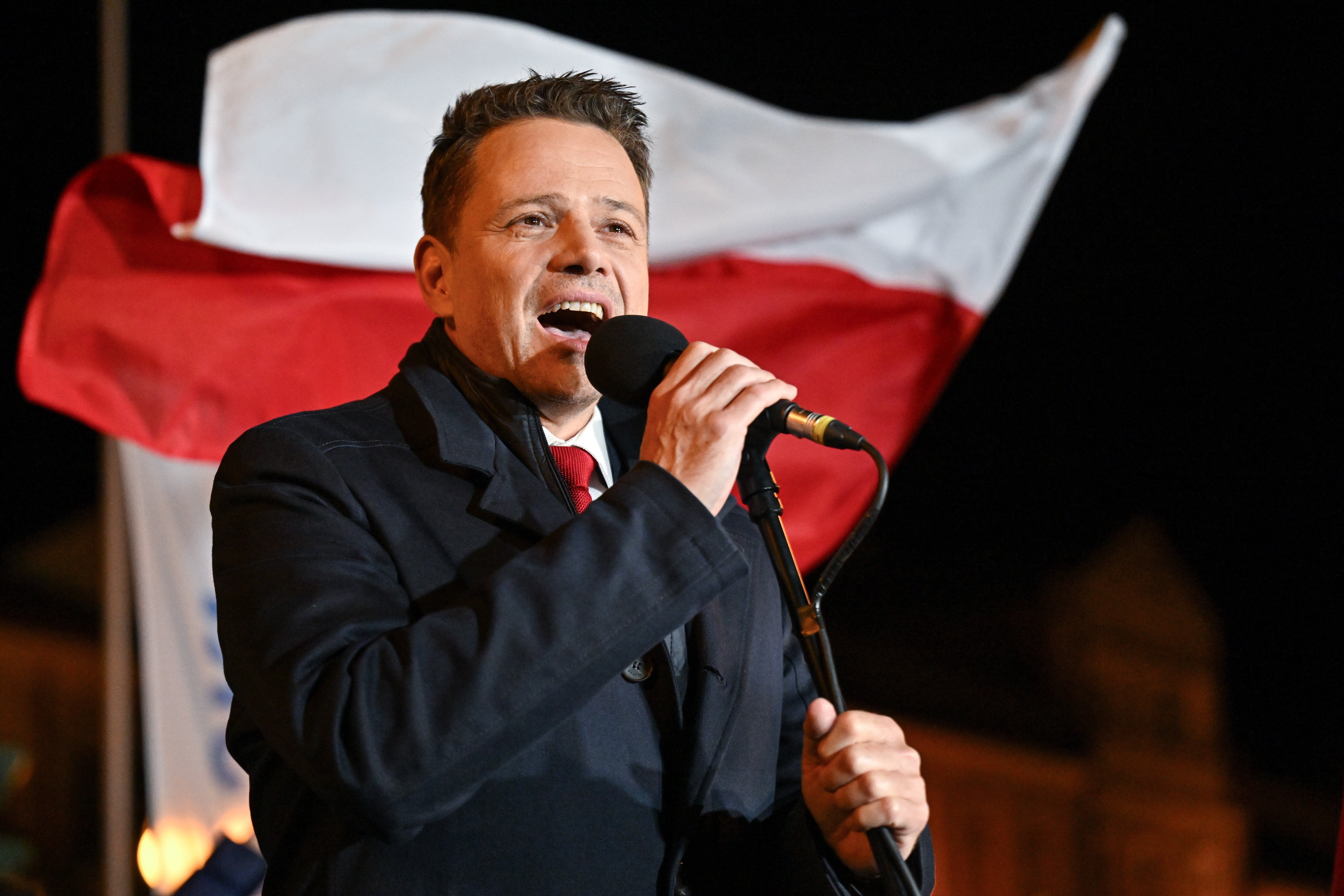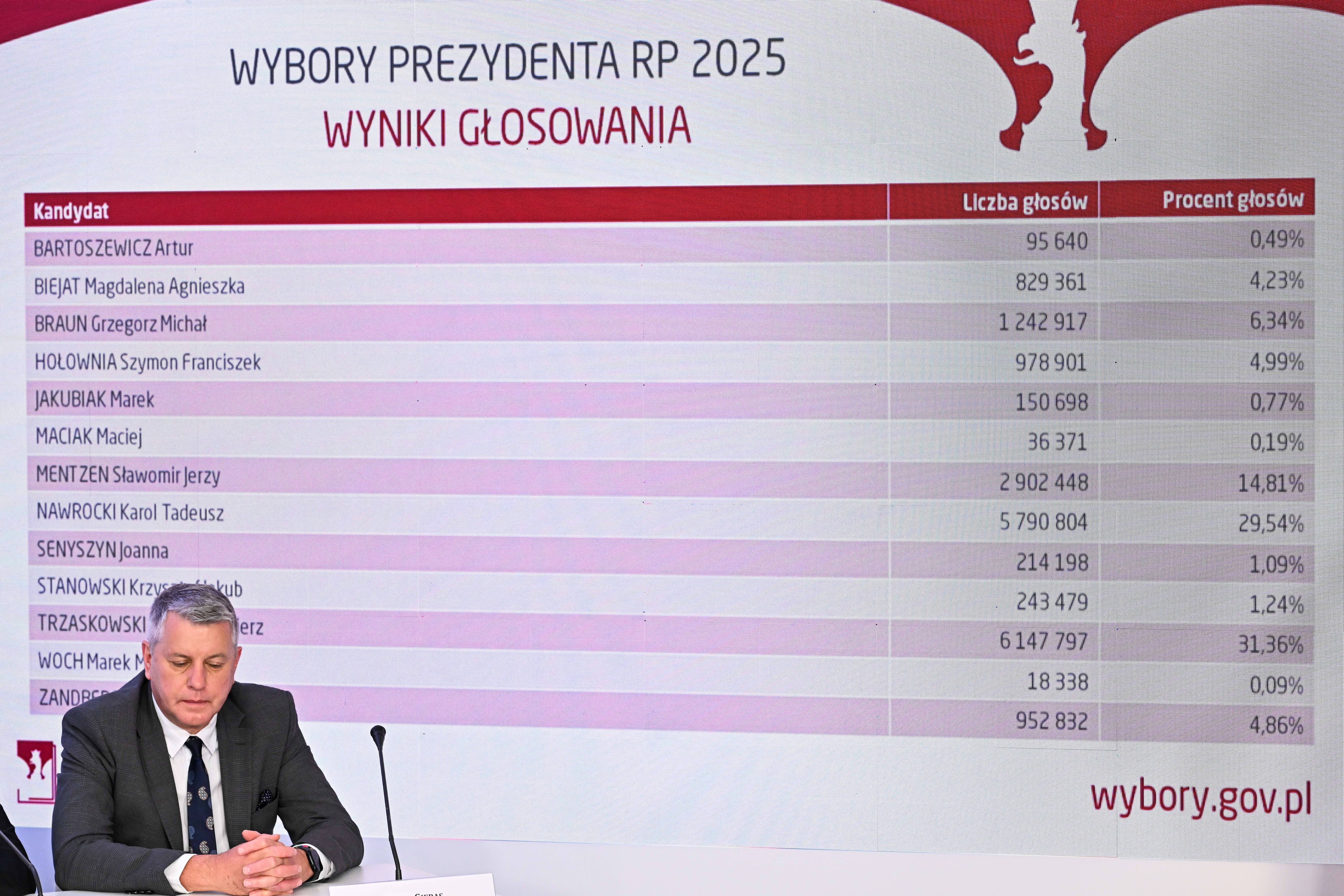ARTICLE AD BOX
Centrist and right-wing nationalist hopefuls contesting Poland's presidential election runoff began a final fight for votes on Monday as the contest proved much narrower than opinion polls had predicted.
A broad coalition government led by Donald Tusk swept to power in 2023 promising to mend ties with the European Union and undo judicial reforms implemented by the previous Law and Justice (PiS) rulers.
However, Tusk's agenda has been stymied by the veto powers of the outgoing president, PiS-ally Andrzej Duda.
Rafal Trzaskowski, from Tusk's ruling Civic Coalition (KO) and the mayor of Warsaw, narrowly beat Karol Nawrocki, the candidate backed by the conservative-nationalist PiS, on Sunday, by 31.4% to 29.5%.
But a surge in support for far-right and anti-establishment candidates leaves the 1 June runoff on a knife-edge.
An Opinia24 poll for private broadcaster TVN published after the first round gave Trzaskowski 46% in the runoff and Nawrocki 44%, with 10% undecided or refusing to say.
“We have to talk to everyone, the most important thing is the arguments,” Trzaskowski told reporters. "I'm glad that many young people went to the polls, but it's a great challenge to convince them to vote for me."

Nawrocki said he would seek support from both left and right.
"My social agenda and the fact that I will be the guardian of the social achievements of the Law and Justice government and Solidarity (trade union) make it an offering for left-wing, socially sensitive circles too," he said.
The far right achieved its best result ever. Slawomir Mentzen of the Confederation party and Grzegorz Braun, who in 2023 caused international outrage by using a fire extinguisher to put out Hanukkah candles in parliament, together scored over 21%.
Many young voters have expressed disillusionment with the dominant parties, KO and PiS, and Mentzen in particular enthused them with an economically liberal, eurosceptic and anti-immigrant programme that he says provides an alternative to both.
But Mentzen has criticised Nawrocki and analysts say it is by no means certain that all his supporters will back the PiS candidate.
Meanwhile two left-wing candidates together scored just over 9% on Sunday. But neither gave Trzaskowski an unequivocal endorsement.
Magdalena Biejat, whose party belongs to Tusk's coalition, said Trzaskowski must show that he "treats left-wing voters seriously".

The race is not only for the presidency, an office with the power to influence foreign policy and veto laws.
It will also seal the fate of Mr Tusk's efforts to repair the country's relationship with European allies after years of rule by PiS, which was often in conflict with Brussels.
Mr Tusk has been trying to reverse changes to the judicial branch that were considered undemocratic by the EU, but his efforts have been largely blocked by Duda.
Many centrist and progressive voters are also disappointed that Mr Tusk has not delivered on other promises, like liberalising the restrictive abortion law.
He has also been criticised for the heavy-handed way he took over control of public media from Law and Justice, and the continued politicization of taxpayer funded public media.
Mr Trzaskowski and Mr Nawrocki wasted no time at all as they head toward the finish line. They got out on the streets early on Monday to meet with voters.
Mr Trzaskowski handed out sweet yeast buns on the streets of Kielce, and Mr Nawrocki distributed donuts and posed for selfies with supporters in Gdansk.
Reuters and Associated Press contributed to this report









 English (US) ·
English (US) ·